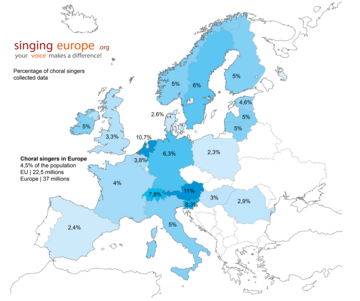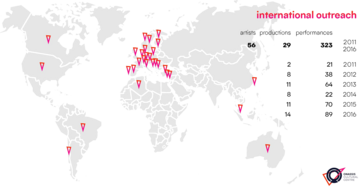
Music and Cultural Diplomacy: Linking Continents – Bridging Cultures
9 - 11 June 2017
Rapporteur’s Report by Emily Achieng’ Akuno
Once again the visitors of the European Forum on Music (EFM) were able to take advantage of the conference to meet old friends again and exchange with many new people. The European Music Council (EMC) is very proud to be the umbrella under which all these different inspiring organisations, associations and individuals come together.
The Forum titled Music and Cultural Diplomacy: Linking Continents – Bridging Cultures was held in Pafos, Cyprus between 8th and 11th June 2017, in a beautiful old powerhouse restored into a cultural centre. The Forum brought together 114 participants: members of various organisations and associations that make up the European Music Council and the International Music Council (IMC), as well as members of the International Association of Music Information Centres (IAMIC). Indeed the 7th EFM was jointly organised by IAMIC and the EMC. Its participants came from all over the world, making it a lively and thrilling conference. According to its tradition, the Forum was hosted by a local organisation and this time it was the Cyprus Symphony Orchestra and the Cyprus Music Information Center. The hosting city was especially significant as Pafos was the European Capital of Culture 2017. A number of concerts organised under Pafos2017 were therefore available to the participants of the Forum, transforming the latter into an exceptional experience.

When Music Becomes a Weapon for Democracy - Ramy Essam
Is Music a Tool for Democracy?
The Future of EU Funding
2 cases of EU Co-Funded Projects - The notion of Start-Ups in Music
Music Organisations as Means for Development of External Relations
Cultural Diplomacy in Partnerships between NGOs and Governments
The European Agenda for Music
See Who is Looking for Partners
Bridge-Building Through Music - Practical Examples
Conclusion
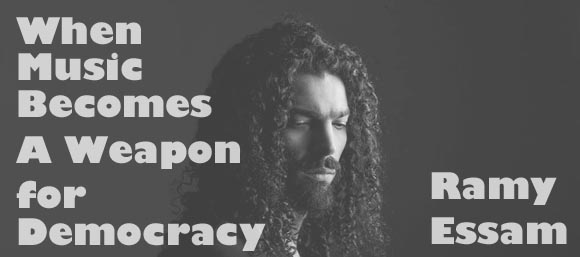
A brief welcome was presented by the EMC President, Mr. Ian Smith and the co-chair of the Forum, Mr. Kostas Moschos, President of IAMIC, both called upon the participants to embrace the occasion and the theme of the Forum: cultural diplomacy. This joint-hosting proofed to be an evidence of the implementation of the Forum’s theme: linking and building, collaborating to achieve a goal of mutual benefit.
This was followed by a well-received concert by the IMC Music Rights Champion, Ramy Essam of Egypt. Ramy’s recital included not only his powerful music but also his experiences about encounters with the police. Ramy Essam is best known for his performances at the Tahrir Square 2011 during the 18 days of the January 25 Revolution. With his song “Irhal” – “Leave” he expressed the feelings of his fellow citizens.
According to Ramy, music is a powerful tool and “music is strong and can make change immediately…the only thing that dictators cannot stop is music and art”. Despite being beaten and tortured his unflinshing will inspired others and is also featured in the documentary “The Square”.
"The closest weapon we have in our hands now is art — songs, movies, documentaries, independent shows on YouTube, graffiti — we have to use them to spread the message". (cf. Al Monitor, January 21, 2014)
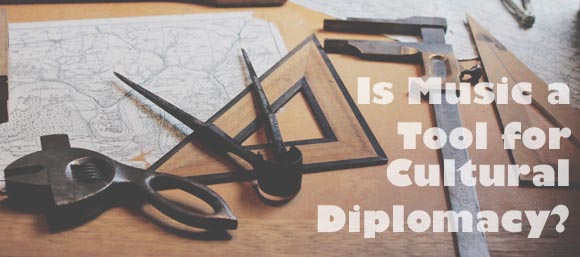
The opening discussion, moderated by Nenad Bogdanovic of the Cyprus Symphony Orchestra Foundation, was facilitated by Paul Dujardin, President of the IMC and CEO of the BOZAR in Brussels; Kostas Moschos, the president of IAMIC; and Ian Smith, president of the EMC.
The key elements included the concept of ‘diplomacy’ and the place of music in its implementation. At state level, it is the ‘application of intelligence and tact for conduct of relationships between states’, hence the execution of foreign policy. When music comes into play, the notion of hard power is dispelled, because music touches people differently ‘you can get what you want otherwise’ – from those admiring your values, those emulating your ways – hence music is a soft power, it has the ability to influence individuals in their preferences.
The idea of music ambassadors is drawn from the understanding that music is knowledge, and that information is the most valuable commodity.
There is no country without embedded musical identity. Countries have cultural attachés, so they attach great significance to the place and value of music culture.
Music has been used to document the history of peoples
There’s a whole litany of musicians who have served as cultural diplomats by singing about or using their music to highlight and propagate specific messages that transform lives. These are examples of music in cultural diplomacy roles.
How music can engender mutual understanding and collaboration:
Culture can be part of the peace initiative. Cultural diplomacy is often not part of the diplomat’s tools, and it is consequently best to get some support from international organisations like music councils.
Face-to-face engagements are a fundamental element of relations. Cultural diplomacy is part of the policy-making process.
Culture is power when used to achieve political objectives. Cultural relations will always exist because artists ravel, interact and mingle. The importance of culture within national diplomacy cannot be overstressed on this account.
There’s need to distinguish between cultural relations and cultural diplomacy. The latter allows for multiple exchanges – between countries, cities or villages and also transnational exchanges. International cultural organisations can make bridges between cultural relations and cultural diplomacy by connecting people. They can show, act and hence connect. Cultural organisations’ roles will hence be to build a bridge to decision makers.
Music can facilitate contact, dialogue and co-creation, and therefore be a valuable tool for creating relationships that are crucial for cultural diplomacy. Diplomatic relationships build upon cultural understanding and appreciation. Relationships that are based on the values embedded in culture; using culture to touch the human in the other with whom we want to forge a diplomatic relationship.
Culture can keep relationships open when dialogue fails, because it can fall on reciprocity and involves person-to-person approaches of interaction. Music and culture are keys to unlocking the door to communication. Relationships are hinged on communication.
Cultural diplomacy must encourage us to leave the bad and encourage the good in politicians, knowing that good politicians are risk takers, and bad ones flirt with power. This can be done by protecting the mobility of music, by ensuring that the voice of music is one of power and passion.
Interactions with the panellists and the audience are essential in our forum
Valuable contributions from the audience was made, stating that the situation can be ambivalent as music can be an extension of colonisation. In some cases, music is not as pure as it should be; cultural diplomacy has a certain potential for misuse. Thus it is important to acknowledge the responsibility that musicians have. Therefore, due to ambitions and values, not all artists have the capacity for diplomacy. Also the art’s ability for cultural diplomacy cannot be seen without the cultural and religious context.
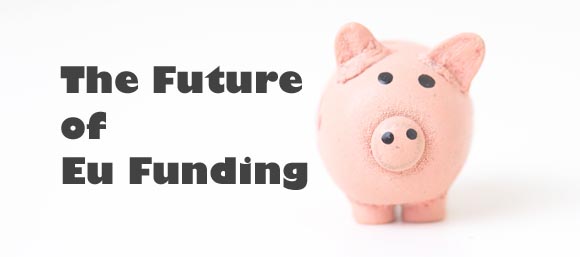
This panel was chaired by Ruth Jacobi, Secretary General of the European Music Council and facilitated by Anna Athanasopoulou of the European Commission, Christos Carras of Onassis Cultural Centre and Sonja Greiner of the European Choral Association - Europa Cantat.
There is an indication that changes are expected in the funding formula or mechanisms of the EU. Music however is noted as a vibrant expression of Europe’s cultural diversity, and seen as a form of art with great appeal. It is a sector with diverse stakeholders, all of them expressing different interests, which results in a rich music ecosystem.
In Europe, the last 15 years saw a dip in revenues of about 40 %.
It is now a re-emerging economy. It is a sector at cross-roads between opportunities and challenges, one of which is presented by the digital shift. It has scope for entrepreneurship (SMEs) and the digital shift determines how music is created, distributed and consumed, whether it is downloading or streaming. Piracy remains a challenge.
In the digital value chain, there are gaps – between creators and artist there is a growing mismatch in revenue. The value gap is a challenge to the sector, as is the mismatch in skills and training.
One of the issues is cultural participation – the need to engage audiences.
The EU Music Moves Europe intervention includes:
- Promoting cultural diversity
- Competitiveness of music sector, i.e. placing it in the economy
Creative Europe (2014-2020) is a EU funding programme that supports cultural and music related activities and devoted 26% of the budget to the latter. Associated action:
- Facilitate access to music – both digital and face-to-face
- Support the development of European Repertoire
- Support skills development – for creators, producers, etc.
- Export art outside Europe (mobility) and build Europe’s external image
However, only 0.15% of EU budget is devoted to culture.
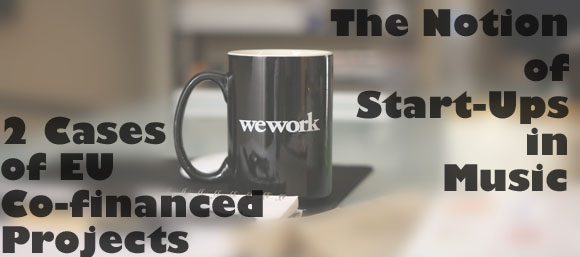
"Upgrade – Connect – Reach Out"
Raising awareness for collective Singing in Europe
Collective Singing is a major cultural activity, providing singers with direct benefits in terms of social integration, health, and cultural development. In a former project the European Choral Association has identified 37 million singers, 4.5% of the population, on the European continent. Through its membership the European Choral Association reaches out to 2.5 million people practicing collective singing.
With their new project “Upgrade – Connect – Reach Out” (running from 2017 – 2021) the European Choral Association is responding to the large number of choral singers and aims to provide capacity building enabling collective singers to congregate with others, cooperate, enlarge their reach and then go beyond their sector to ensure cross-sectoral cooperation.
How
- Capacity building workshops
- Staff exchange
- Study tours
- Singtanks – a think tank for collective singing – to develop a strategy for beyond 2021
- Foster inclusive activities of all kind
- Competitions for “choral start ups”
- Cooperation with businesses
- Campaigns on benefits of singing
- Collect research on Collective Singing and promote them
"Interfaces"
“Interfaces” is a project by the Onassis Cultural Centre that brings contemporary music to a wider audience. The contemporary music sector is one where it is hard to get accurate and meaningful data, due partly to its stylistic diversity. Its 9 partners come from 8 different countries with different expertise ranging from varied experience in performance, multimedia, new media, acoustic and electro-acoustic research, community action and education. The project aims in working on audience development and engages in strategies of reaching out, such as working with other sectors (visual arts, film, theatre), and working through other audiences.
Music is a social experience, so live shows are crucial to its success. This raises another challenge - of mobility, hence performance space, venues etc. Support for the artist or programmer is important, but creating conditions for audience engagement through participation and education is vital. In this case the project works by adopting its own strategies for contemporary music.
Emerging issues
It is important to apply for funds for projects that you can sustain (without the expected funds), and allow funding donor to help with networking;
It is good to have other ongoing projects as you apply for funds so that you aren’t forced to stop all activities
Keep it balanced between workload and money received when writing your application, and keep in mind the reporting workload
Transparency and accountability are crucial for a rather elaborate EU Financial Reporting process – it covers proportionate, legitimate and necessary reporting/considerations
Facts:
- The role of youngsters in the European Agenda
- Education – access to music education
- EU funding can only support what national governments are doing – it doesn’t substitute or go beyond that.
- Erasmus + scopes for enabling cooperation between educators.
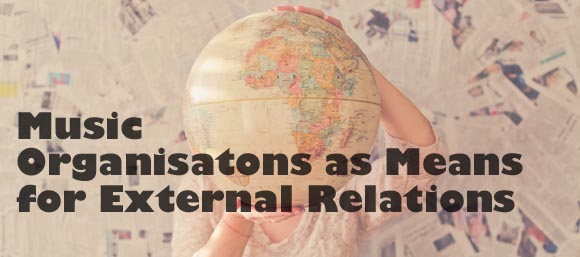
This panel moderated by George Michael Klimis took a further look on how music organisations, being for profit or not for profit, are paving the way to intercultural relationships. Christine Semba from Piranha Arts, Amitava Bhattacharya, Bangla Natak, and Olga Smetanová, Secretary General of the International Society for Contemporary Music explained further their work.
Piranha Arts: "World Music is not a genre but an attitude" said Christine Semba. From world music to a broader range of international projects, Piranha Art is – by inclination and by necessity – a pioneer in working at an international level with many regions worldwide; in supporting the international mobility of artists; and in promoting cultural diversity. Since 1994, WOMEX has increased the value of crossing borders, be these musical, political, cultural or commercial, finding ways to ensure that its valuable knowledge will adapt to the changing cultural environment – way beyond the world music sector.
Bangla Natak: The organisation works for social and behavior change. They specialized in use of Theatre in Development based methodology for public education and empowering men, women and young people to be change makers in their own communities. One project, "Art for Life" (AFL), is their flagship initiative for empowering communities to develop micro economies based on traditional art and craft skills, for which they also work together with governments. Bangla Natak has many inspiring projects, including using music. With the annual Festival called "Music for Peace, Music for All" they created a platform for cultural exchange and dialogue, and spreading and enhancing cross-cultural awareness and understanding.
International Society for Contemporary Music: The annual ISCM World Music Days Festival is organised each year by a different host. The festival presents music from each of their members, showcasing the incredible diversity of musical practice in our time. Being a world-wide organisation, the Festival brings together nations from all over the world.
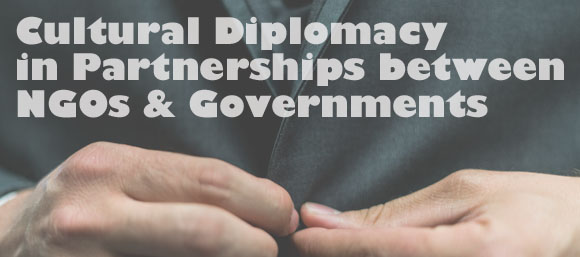
This panel was chaired by Dr. Elena Theodoulou-Charalambous of the Cyprus Ministry of Culture, and facilitated by Jens Cording from Music in Africa; Kifah Fakhouri, Chair of the Euro-Arab Youth Music Centre and Rüdiger Klein, Culture Action Europe.
This was a very informative session, with potential for generalisations, yet, full of case reports and presentations of actual positions, achievements and perspectives.
The moderator highlighted a need for partnership between NGOs, government and international organisations as best ways of linking continents. In the presentations, the three partners are clearly
Music in Africa
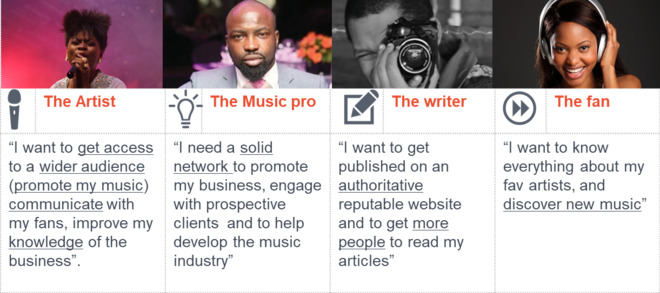
This initiative is present in 26 Anglo or Franco-phone countries of Africa with financial support from the German Siemens Stiftung & Goethe-Institut. Its focus is to be the centre for information, to support knowledge exchange and to provide online and face-to-face training for musicians. It purposes to be a one-stop shop for musicians and music businesses in Africa. With the diversity of Africa’s practices, mostly identifiable along linguistic demarcations, “Music in Africa” has worked with Anglo and Franco-phone countries, and plans on engaging lusophone and Arab countries in 2018 and 2020 respectively. The services offered catering for artists, music promoters, writers and fans, so that it can really be a one-stop shop for music professionals. Several support tools can be found on their website.
It supports sustainability for the different partners in the music and media markets and comes up with attractive projects.
Euro-Arab Youth Music Centre
The centre is in Limassol, Cyprus and provides music experiences for youth draw from the region. Its activities are geared towards improving cooperation in music and youth in the Mediterranean region. This is a truly diplomatic action, being co-founded by different international and government agencies.
Its activities involve youth in training and concerts. They include workshops, concerts and the spreading of the message of peace and music across cultures. In holding the Youth Music Expo, young people interact and forge relationships and understanding.
The Euro-Mediterranean Music Dialogue of 2010 identified the Youth Music Expo where music is seen as part of diplomacy. The main objective is to improve operational capacity of NGOs working in the music field.
Culture Action Europe
Not confined to the EU but taking Europe as a whole, this organisation works on giving opportunities to artists to send messages to institutions and operators in power.
Recognising that culture is part of the European external actions is important. Indeed as the economic value of music is being more and more recognised, the political power of music in the meantime is yet to be considered.
The themes under Culture Action Europe include technical (digital) creativity, social and economic matters and diversity of artistic expression.
Under this initiative, culture is interpreted as ways of initiating and overcoming conflict. The myriad of uneven opportunities for participation in cultural expression is a potential point of conflict. Though ever present, culture is not necessarily visible in political discourse. The 5 Music Rights are a way of articulating the educational, pedagogical values of culture. But, the values of culture are foundational to a just and inclusive society.
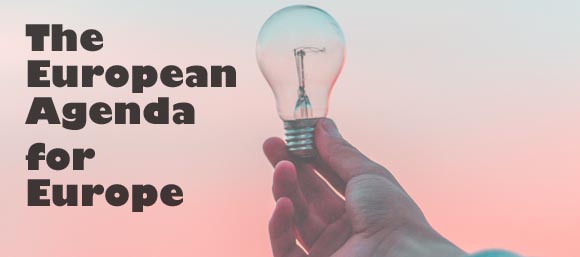
The European Agenda for Music (EAM) has seen quite a development from 2016 onwards. The Forum is the perfect place not only to report on the latest updates but also to gather feedback from the audience and thus from the sector. After an informative presentation on the EAM by Stef Coninx the audience was divided in several small groups to discuss on the document in detail. The feedback of the different groups was included in the draft, that was in a first step circulated as a consultation within the EMC membership after the European Forum on Music. The internal consultation was open until October 2017 after which the draft was updated. In a second step from November 2017 to January 2018 the wider music sector was consulted by an open consultation. For detailed information on the Agenda please visit the dedicated website.

This is a session that gives the forum participants a space to present their project when seeking project partners. These were the projects:
- Global Week for Syria – whenever doing a music event with and for refugees join the Global Week for Syria initiative
- European Orchestra Festival EOF - Member orchestras (1000 participants) from all over Europe get together for concerts and workshops/masterclasses for 4 days
- European Conference of Promoters of New Music
- Traditional Tunes for Tiny People - a project introducing pre-school children to traditional music of Scotland along with their parents and carers, learning music through the oral tradition. The project is transferable to any country with a cultural tradition of folk music.
- International Rostrum or Composers – now 64 years focuses on education, audience development and creation in the field of New Music
- The Silk Road Symphony Orchestra – an inclusive classical music initiative
- Singing Roadshow – 2 to 5 days in an informal “learning by doing” process, joining singers, conductors, choirs, teachers & trainers to practice and share repertoires and methods, thus building bridges in mixing classical and pop music. These workshops could easily be implemented in other countries.
- Strengthening Music in Society (SMS) – strengthening the social relevance of music education and improving access to it
- Sing me In – how to use choirs to integrate youngsters of different nationalities with a focus on migrants
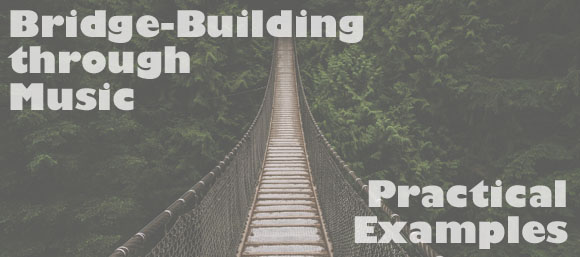
This panel moderated by Silja Fischer featured practical demonstrations of how music facilitates cultural diplomacy while building various kinds of bridges – mostly psychologically, socially, politically, and ideologically bridges. These are examples of projects that integrate, enhance, develop and cultivate cultural diplomacy presented by Davide Grosso, Merlijn Poolman, Ellada Evangelour, David Sanders and Henrik Melius.
- The Anna Lindh Foundation acts as a dialogue forum – where culture addresses topics related to migration, allows more interaction between individuals, tackles issues like radicalism and development;
- The project Brüder has the aim to educate young people on peace on a European level not by lecturing them but through personal stories from ancestors transformed into music. It is a European-wide project collecting songs. This is a completely different approach of remembering and learning about wars and our European history and brings the nations, who participated in the war, together.
- The project Our Lives from the association Spiritus Mundi focuses on giving tools of social improvement to disenfranchised youth and orphaned children. Its goal is to replace fear by curiosity, taking the time to build trust and to empower children, especially disabled children, by performing on stage, to overcome the stigmatism they too often experience. Our Lives brings together Israeli, Muslim and Christian youngsters all over the world - a first encounter for many of these kids.
- The project Music and Resilience Support – MARS – aims to offer to refugees and asylum seekers, fleeing very often traumatic life situations, Specialised Training Courses for social workers using music interventions.

The theme of the Forum has been Music and Cultural Diplomacy: Linking Continents – Bridging Cultures.
After talking so much to different music stakeholders, not only during the European Forum on Music but also for the magazine SOUNDS in Europe, it has shown a quite diverse understanding of the term diplomacy and cultural diplomacy.
Ole Reitov from Freemuse, an organisation defending artistic freedom and helping musicians, puts it that way in an interview:
SOUNDS: Would you say that cultural diplomacy is an element of Freemuse’s work?
Ole Reitov, Freemuse: "To be honest, I’ve never seen a good explanation for the term ‘cultural diplomacy’. They all seem to be variations on a concept.
We rarely think of the work we do as cultural diplomacy because I find that the expression is frequently used as something that occurs between two countries or institutions."
(SOUNDS in Europe 12, p. 11)
Yet, in order to defend musicians at risk, Freemuse has to be in contact with governments and the UN and thus keeps the conversation with politicians alive. Stretching the meaning of Cultural Diplomacy allows for more possible actions, specifically in the field of protest music and using music as a soft power like the organisation Spiritus Mundi.
Cultural Diplomacy is a notion, which can be understood in various ways, as the two separate words may not always seem to be connected with each other. It can also lead to misunderstanding as one may think that it is a way for governments to abuse their power through culture. It is therefore important to always elaborate on the signification and be aware of the context of the concept one is dealing with.







